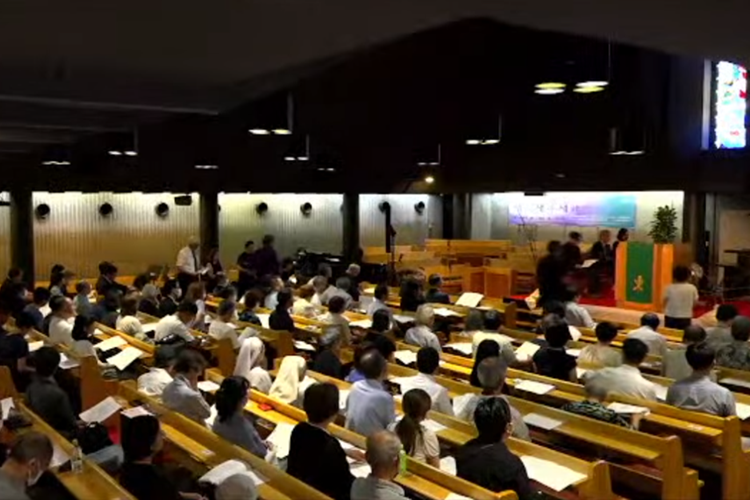Japanese Christians gathered in Tokyo to mourn the Chinese and Korean victims who were killed after the 1923 Great Kanto Earthquake.
On September 3, Christians in Japan commemorated the more than 700 Chinese and 6,000 Koreans who were massacred in the Centenary of Christian Memorial Meeting of the Great Kanto Earthquake Korean and Chinese Massacre held at the Tokyo Korean Christian Church at Lidabashi.
Presided by Mitsunobu Ichiro, a leader of the Japanese Catholic Council of Justice and Peace, the memorial meeting included a reading of the background by Rev. Kano Yoshitaka, chair of the National Christian Council in Japan (NCCJ), and a message by Kim Jong Soo, a member of the peace and justice committee of the National Council of Churches in Korea and a Korean Presbyterian pastor, and congregational repentance prayers.
Rev. Kano Yoshitaka, chair of NCCJ, told the participants that on September 1, 1923, a major earthquake with a magnitude of 7.9 struck Tokyo and the Kanto region. However, rumors began to spread that afternoon that Koreans there were rioting, “setting fires, attacking people, and throwing poison into the wells.” The detention of Koreans by the authorities and the massacre of them by vigilante groups started that night. The massacre lasted from September 1 to 6, resulting in the deaths of over 6,000 Korean and 700 Chinese people living in Japan.
Rev. Dr. Sungjae Kim, general secretary of NCCJ, introduced in his essay that the Japanese government could not keep the records secret by covering up the bodies of the massacred victims. Reflecting the meaning of such commemoration, the general secretary said, “Think about what it would be like if they were sisters.”
“It also talks about the dark side of the human heart that has the destructive power of hostility, discrimination, and fear that causes such tyranny to be committed against the nation, society, and the genocide of human beings. Let’s reconsider the roots of the human psyche that give rise to insanity and the inaction of passive spectatorship, the taboo view of facts, and the convention of silence,” Kim added.
He continued in the paper that after Japan was defeated in World War II, Japanese theologian Kazo Kitamori wrote a book called Theology of the Pain of God. Karl Barth commended its academic depth and said it was a “Japanese” theology. He mentioned that what we should look at in Northeast Asia, including the Korean Peninsula, is missing from the “Japanese perspective.”
He further stated that 100 years after the Kanto Korean genocide, the “Japanese perspective” is once again being exposed to the Japanese Church.
“But we must be aware of the world mission responsibility of the Christian churches in Japan and Korea.”
“It is to return to Jesus Christ, who was crucified and abandoned by his disciples, while thinking over and over again. God leads us to the Lord's presence by reminding us of the lives that were about to vanish into the mists of our own history. Seeking forgiveness, reconciliation, and peace, Japan embarked on a large-scale military expansion in preparation for the war, known as the ‘new pre-war period’. We can renew our profession and transform the church into a mission. We can make it a refuge that actively conceals and safeguards life and human rights from the tyranny fueled by hostility and hate in modern and future Japan as the world undergoes a revolution. It is a road,” he concluded.













